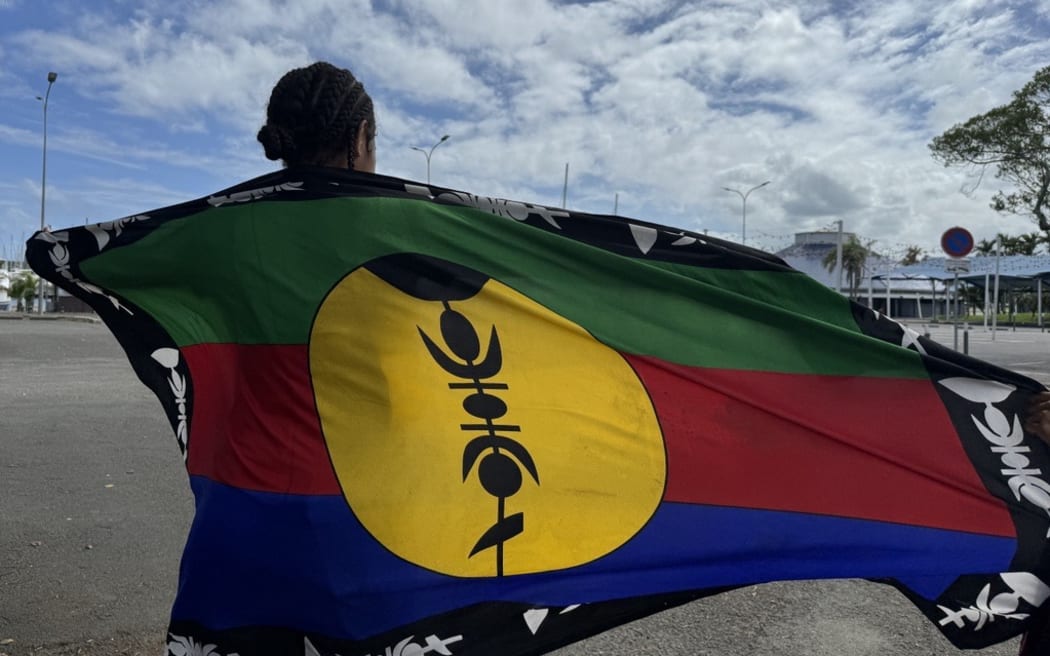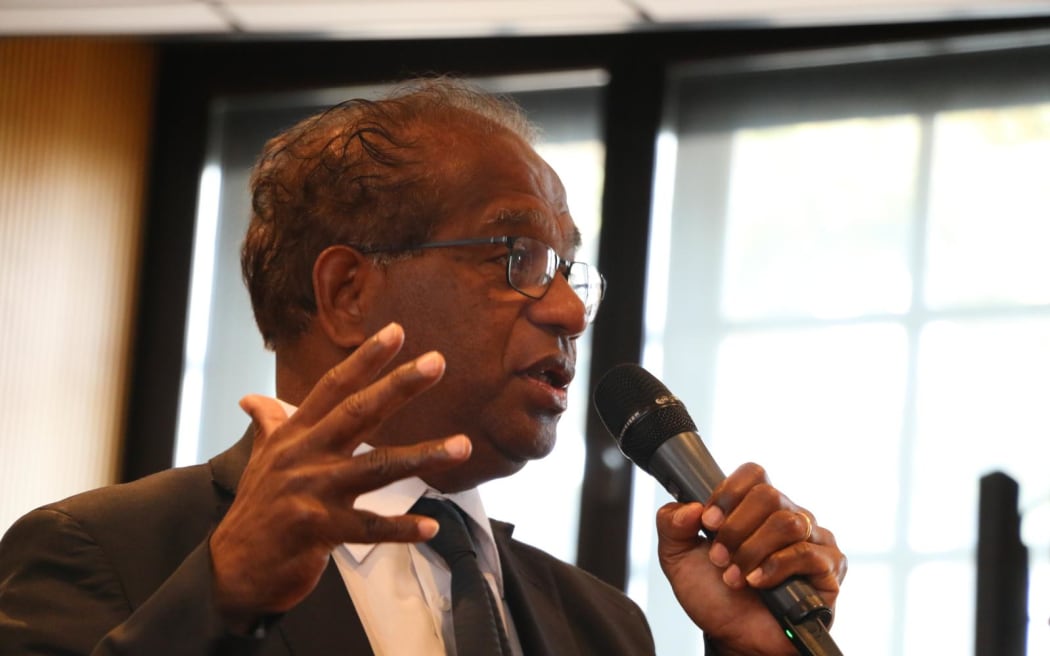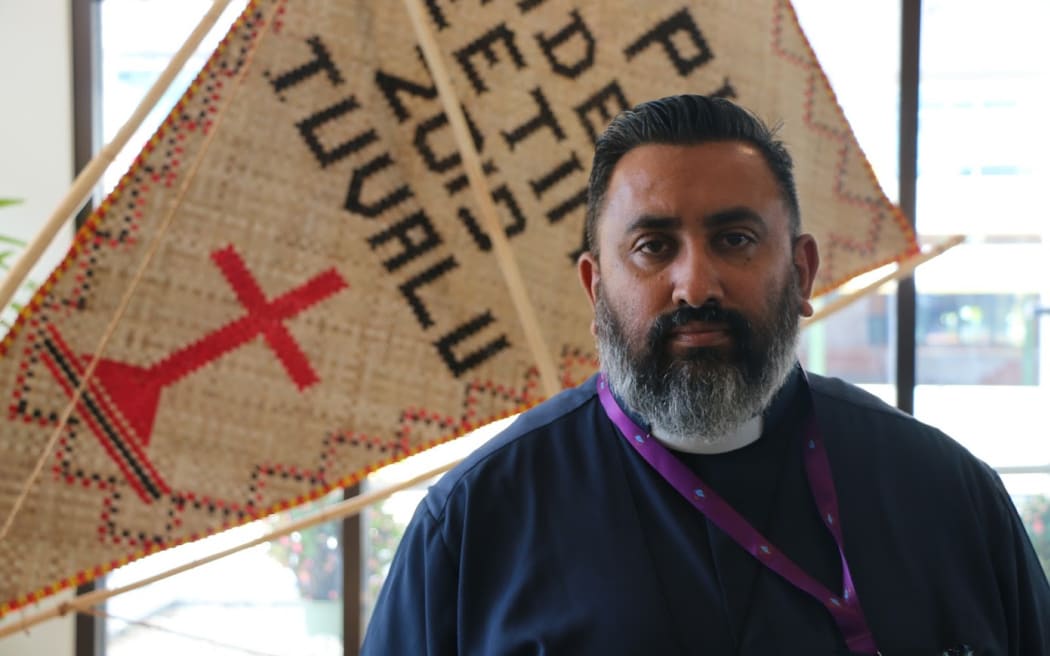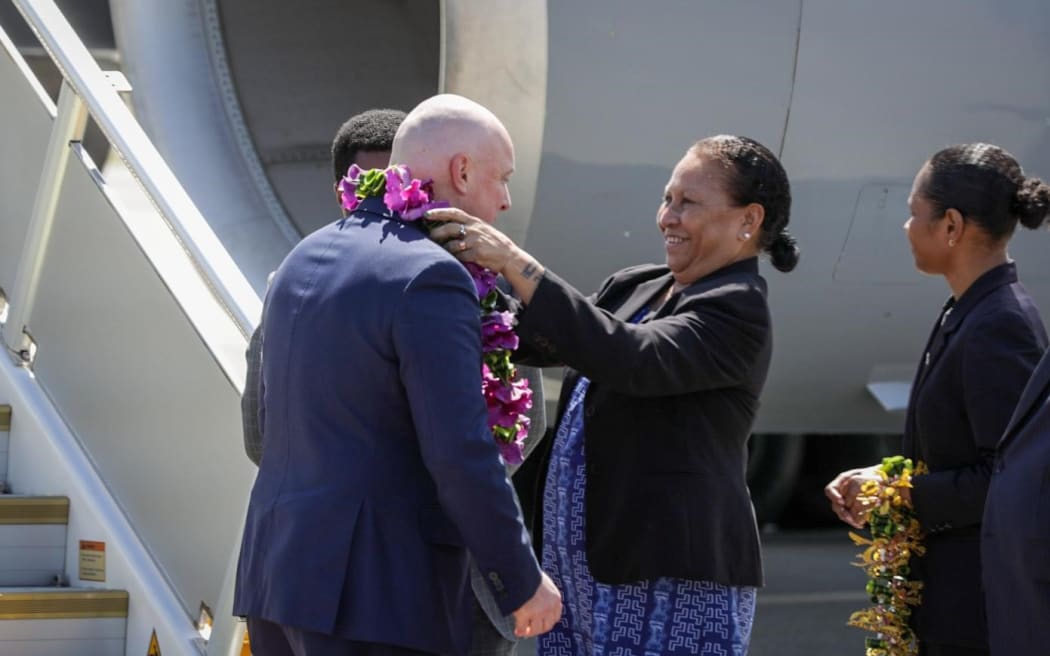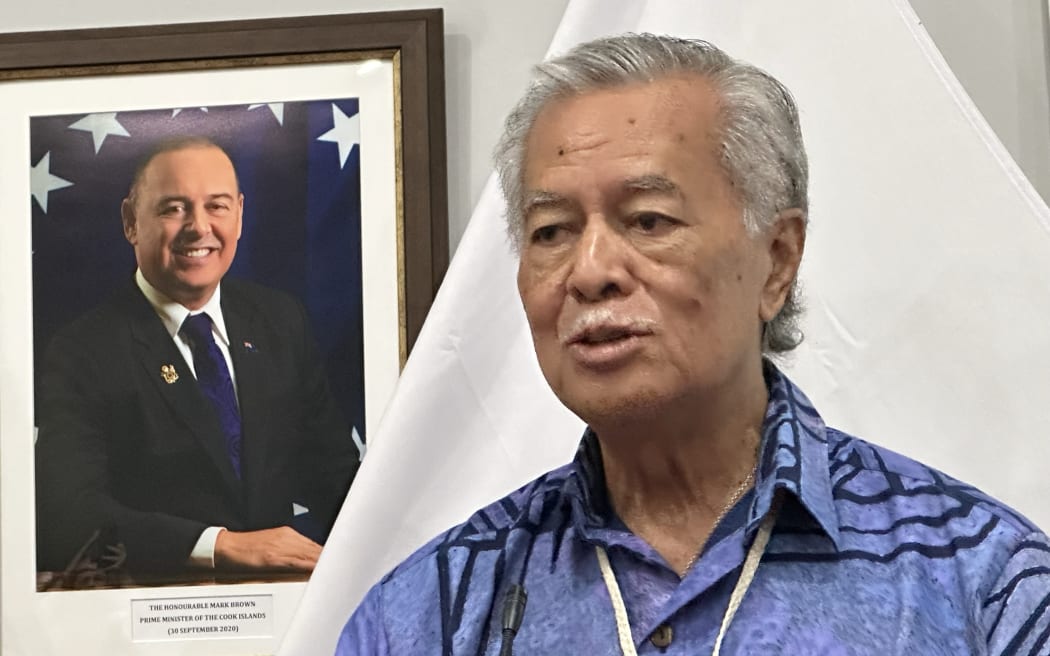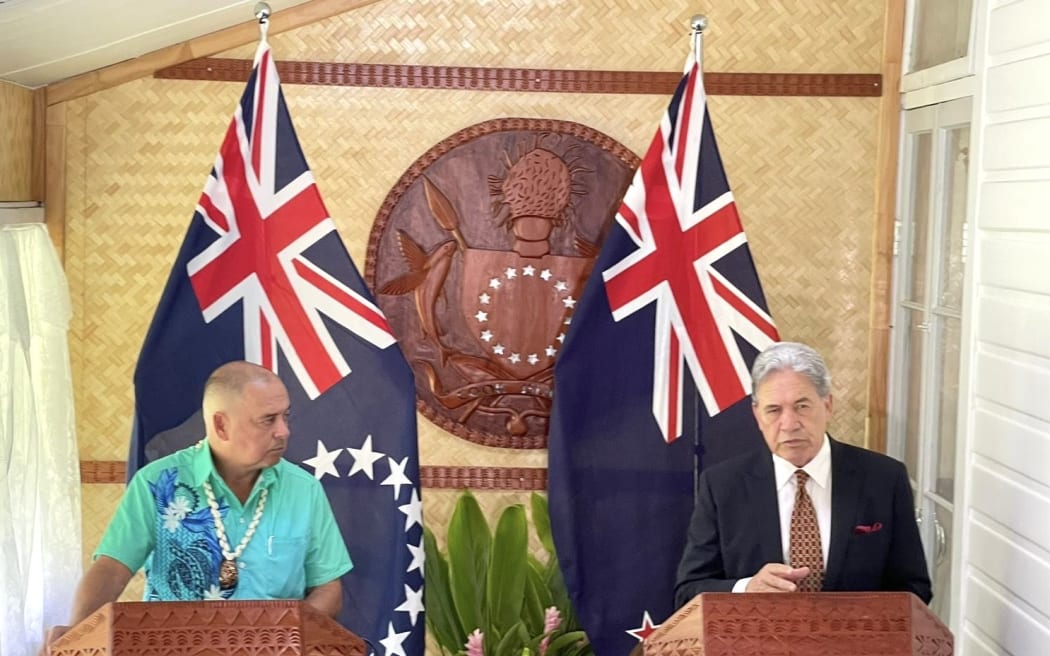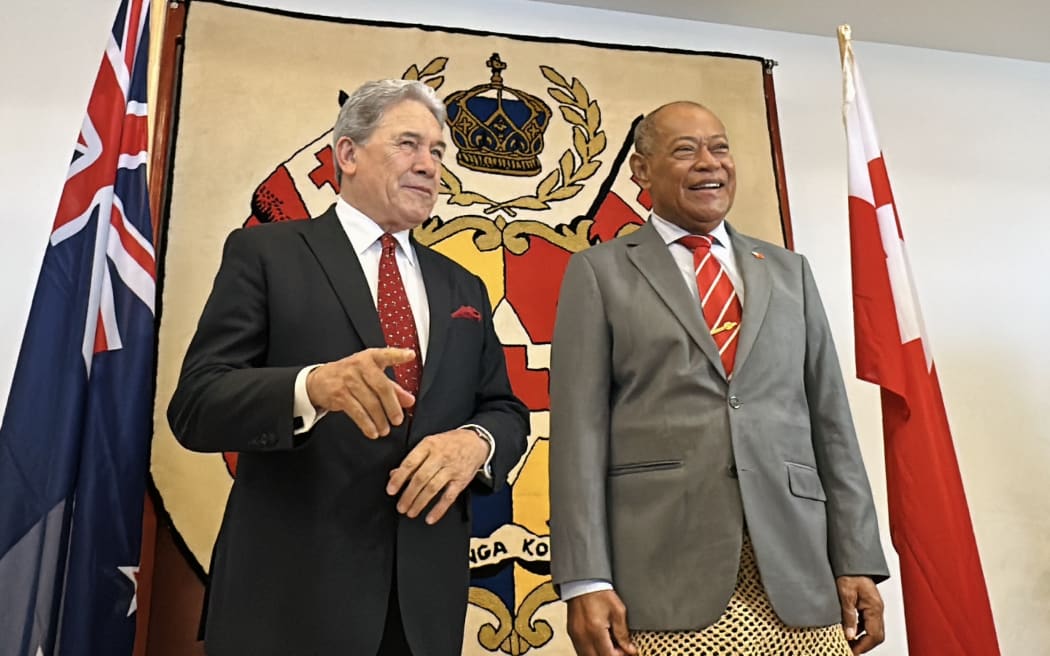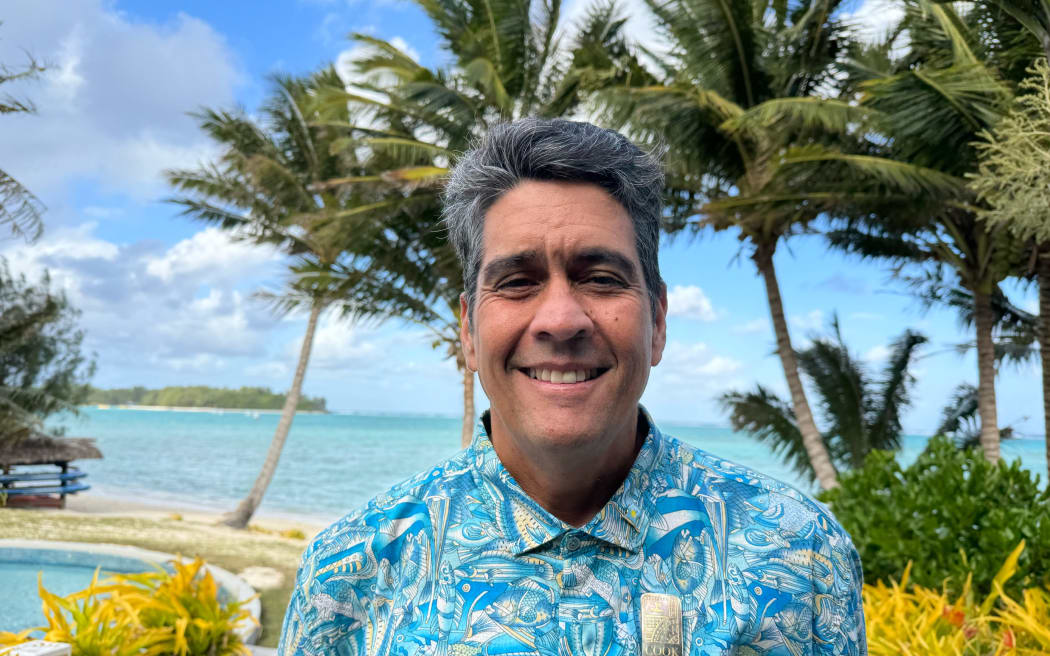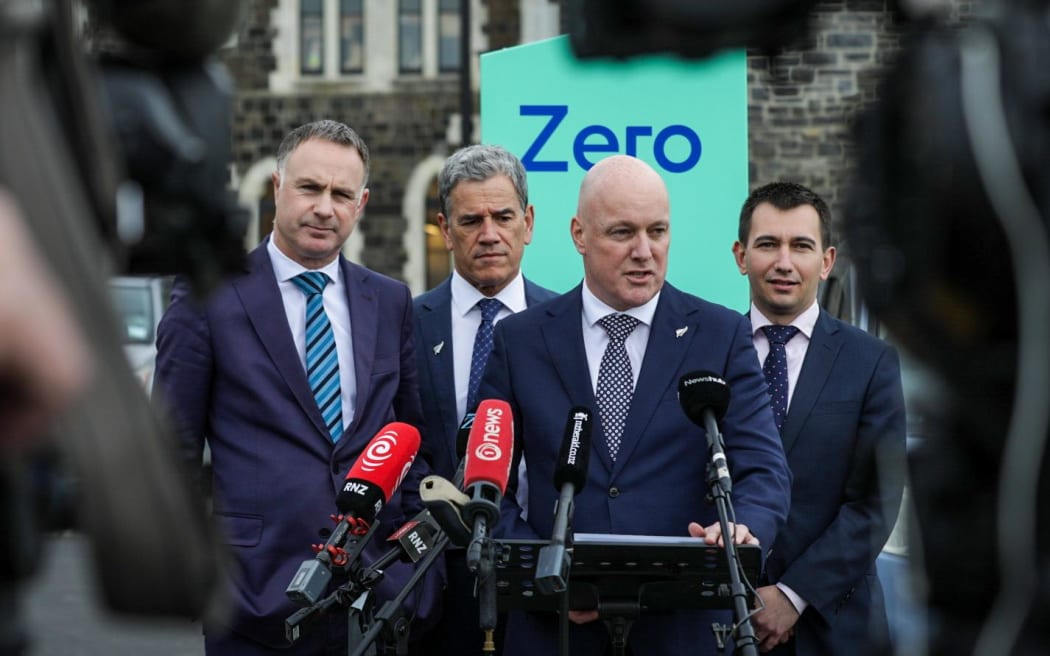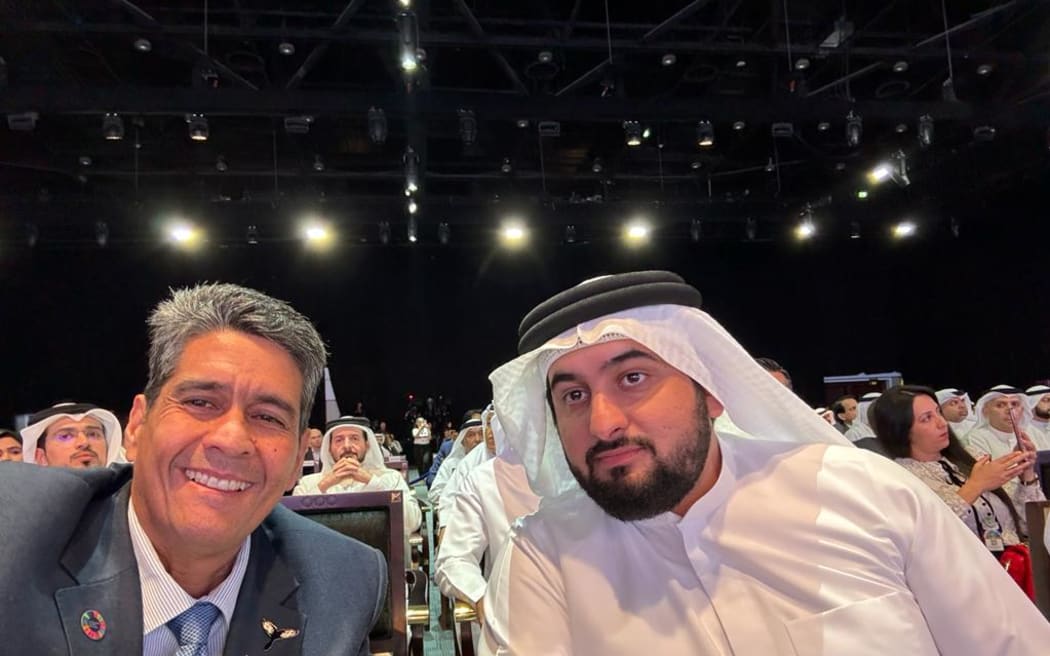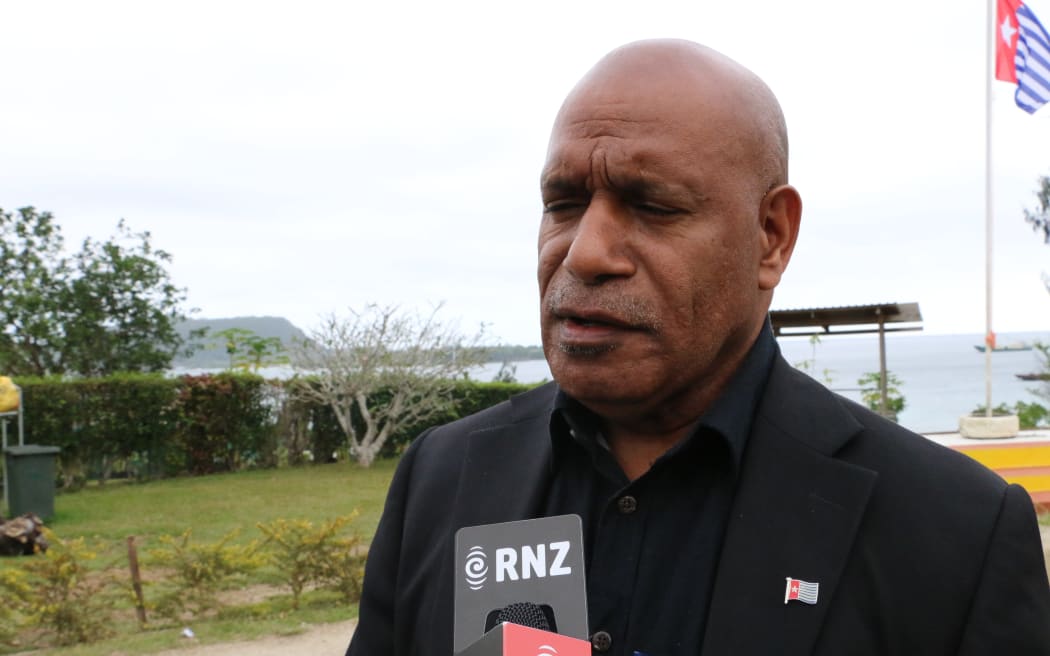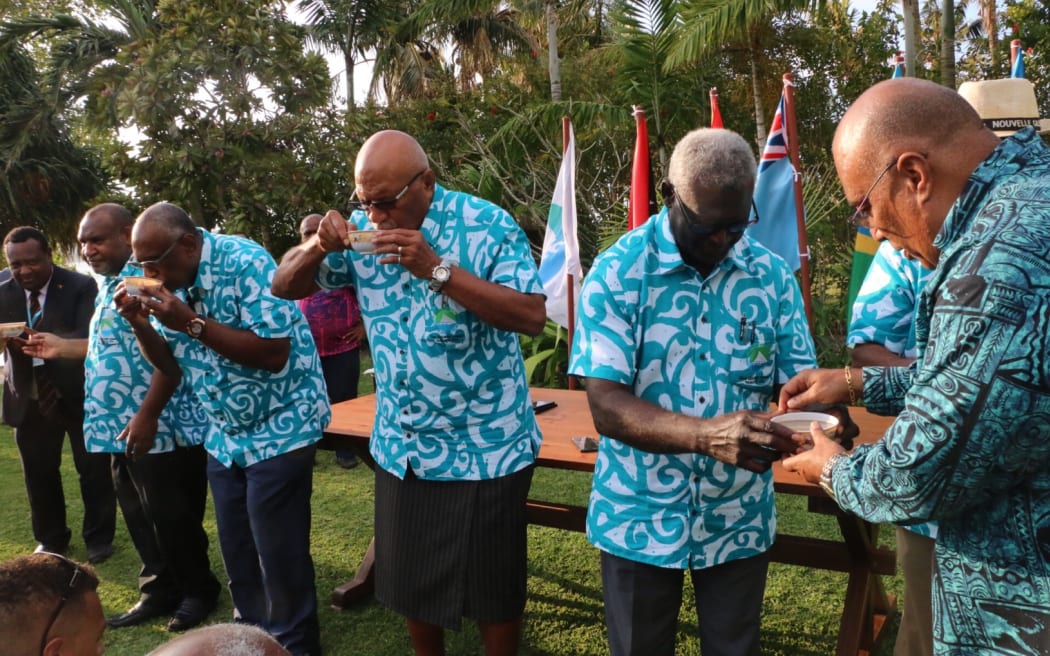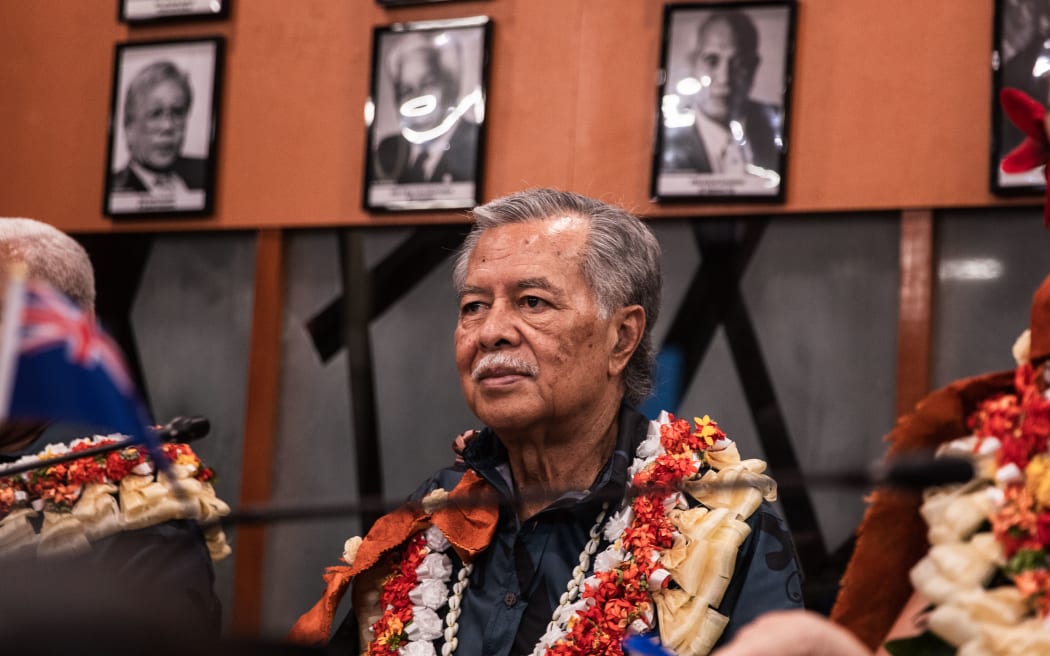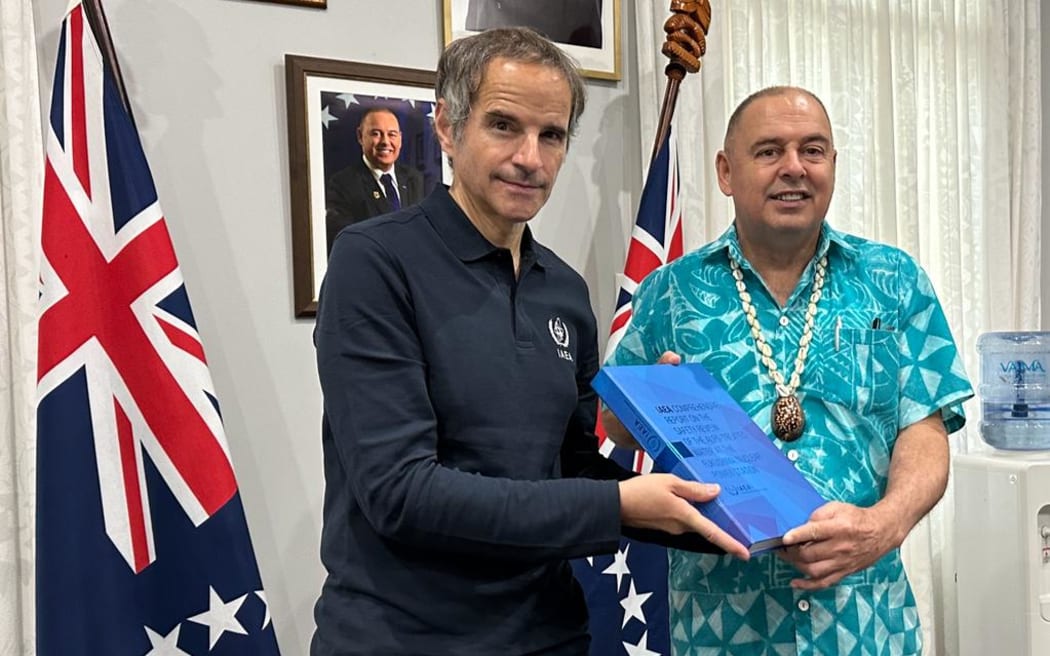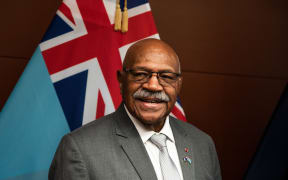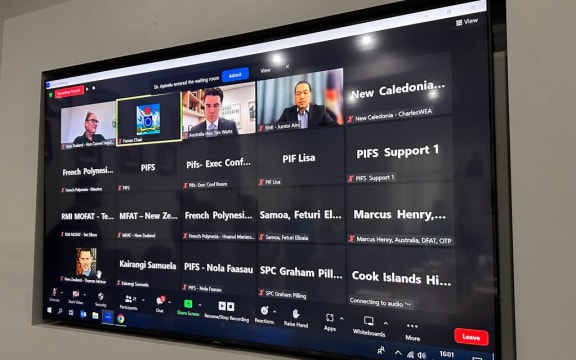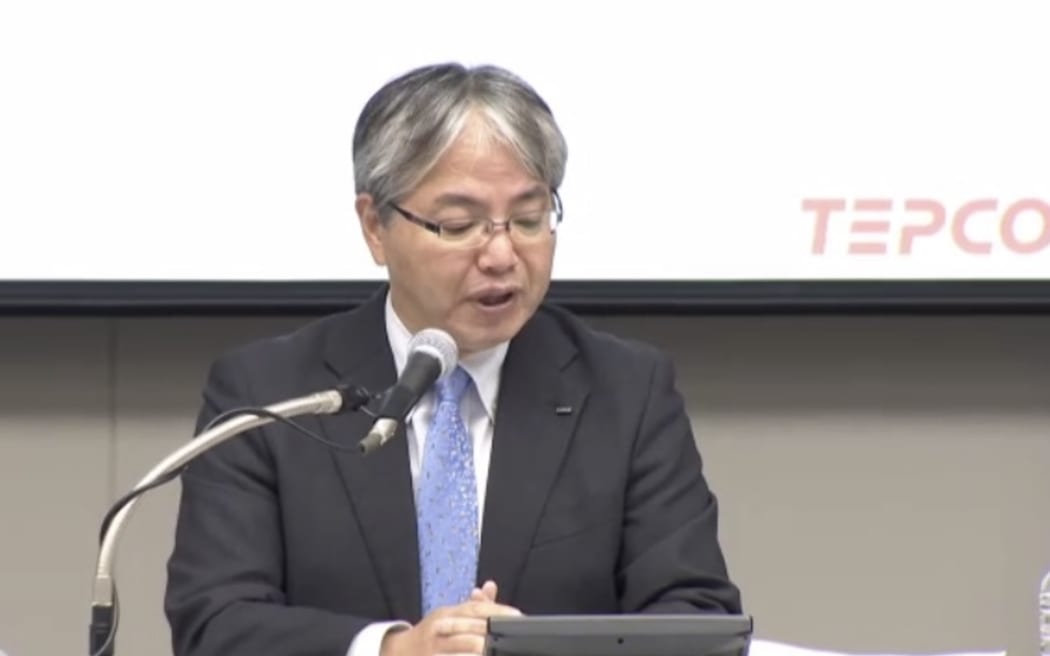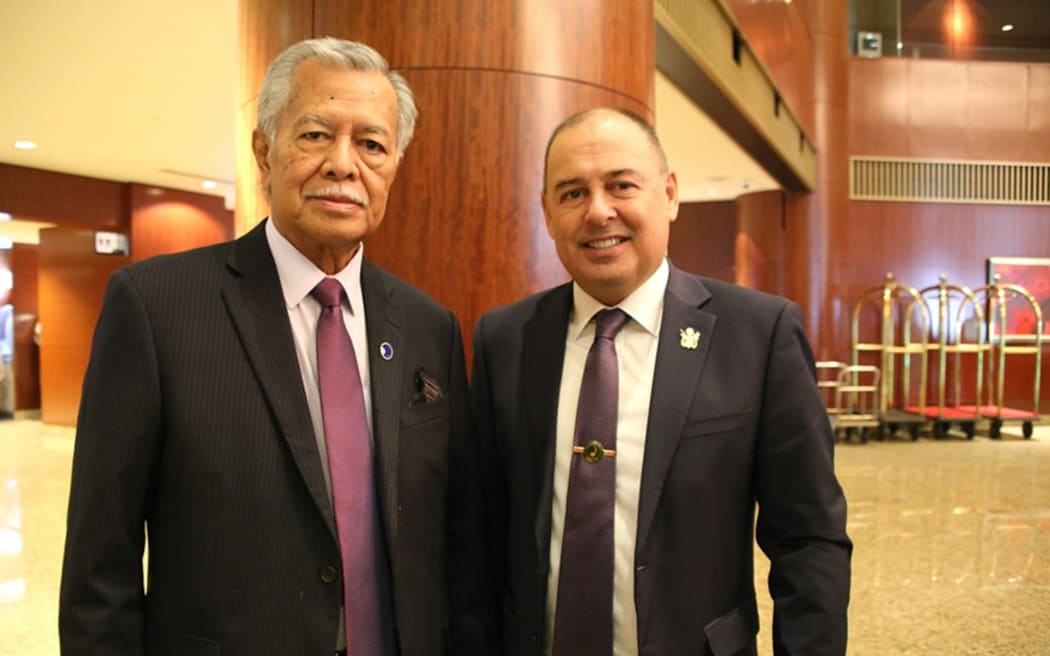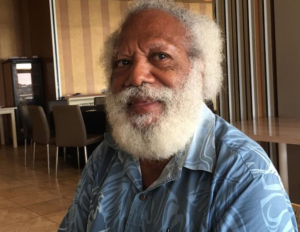By Stefan Armbruster, Victor Mambor and BenarNews staff
An unheralded visit to Indonesia’s Papuan provinces by a leading Pacific diplomat has drawn criticism for undermining a push for a United Nations human rights mission to the region where pro-independence fighters have fought Indonesian rule for decades.
The Melanesian Spearhead Group’s Director-General, Leonard Louma, has not responded to BenarNews’ questions about the brief visit. It occurred just days after the most recent clash between Indonesian forces and the Papuan resistance, which resulted in four deaths and hundreds of civilians fleeing their homes in Paniai regency in Central Papua province.
Indonesia has capitalised on the visit earlier this month to portray its governance of the contested Melanesian territory, generally referred to as West Papua in the Pacific, in a positive light.
State news agency Antara said Louma had declared Papua to be in a “stable and conducive” condition.
A highly critical UN Human Right Committee report on Indonesia released in May highlighted “systematic reports about the use of torture” and “extrajudicial killings and enforced disappearances of Indigenous Papuan people.”
The Indonesian government’s sponsorship of the visit is “another attempt to downplay a global call, including from the MSG, to allow the UN Human Rights Commission to visit and assess human rights conditions in Papua,” said Hipo Wangge, an Indonesian foreign policy researcher at Australian National University.
“It’s also another attempt to neutralise regional concern over deep-seated discrimination against Papuans,” he told BenarNews.
UN human rights rebuff
For several years, Indonesia has rebuffed a request from the UN High Commissioner for Human Rights to carry out an independent fact-finding mission in Papua.
The Pacific Islands Forum, a regional organisation of 18 nations, has called on Indonesia since 2019 to allow the mission to go ahead.

The Melanesian Spearhead Group (MSG) — whose members are Fiji, Vanuatu, Papua New Guinea, Solomon Islands and New Caledonia’s Kanak independence movement FLNKS — has made similar appeals.
It is unclear whether the comments attributed to Louma by Antara and an Indonesian government statement are his own words. The Antara article, published last week on June 19, in English and Indonesian, is more or less identical to a statement released by Indonesia’s Ministry of Information and Communications.
An insurgency has simmered in Papua since the early 1960s when Indonesian forces invaded the region, which had remained under a separate Dutch administration following Indonesia’s 1945 declaration of independence from the Netherlands.
Indonesia argues its incorporation of the mineral rich territory was rightful under international law because it was part of the Dutch East Indies empire that is the basis for Indonesia’s modern borders.
Papuans, culturally and ethnically distinct from the rest of Indonesia, say they were denied the right to decide their own future and are now marginalised in their own land. Indonesian control was formalised in 1969 with a UN-supervised referendum restricted to little more than 1000 Papuan voters.
Arrived from PNG
The Indonesian statement said Louma, his executive adviser Christopher Nisbert and members of their entourage arrived on June 17 at the Skouw-Wutung border crossing after traveling overland from Port Moresby in Papua New Guinea.
They were met by an Indonesian diplomat and then traveled to Jayapura accompanied by Indonesian officials.
On June 19 they took part in a conference organised by Indonesia’s Ministry of Foreign Affairs that was purportedly to address security concerns in Melanesia.
Yones Douw, a Papuan human rights activist based in Paniai, said a properly conducted visit by the Melanesian Spearhead Group should have had wide public notice and involved meetings with churches, customary leaders, journalists and civil society organisations, including the independence movement.
“This visit is just like a thief — in secret. I suspect that the comments submitted to the mass media were the language of the Indonesian government, not on behalf of the MSG,” he told BenarNews.

“This way can damage the togetherness or unity of the Melanesian people,” he said.
The United Liberation Movement for West Papua (ULMWP), an independence movement umbrella organisation, said it should have been notified of the visit because it has observer status at the MSG. Indonesia is an associate member.
‘A surreptitious visit’
“We were not notified by the MSG Secretariat. This is a surreptitious visit initiated by the Indonesian Ministry of Foreign Affairs,” said Markus Haluk, the ULMWP’s executive secretary.
“We will file a protest,” he told the MSG’s chair, Vanuatu Prime Minister Charlot Salwai.
Indonesia, over several years, has stepped up its efforts to neutralise Pacific support for the West Papuan independence movement, particularly among Melanesian nations that have ethnic and cultural links to Papuans living under Indonesian rule.
It has had success in ending direct criticism from Pacific island governments — many of which had used the UN General Assembly as a forum to air their concerns about human rights abuses — but grassroots support for Papuan self-determination remains strong.
Wangge, the ANU researcher, said the Indonesian government had been particularly active with Melanesian nations since Louma became director-general of the MSG’s secretariat in 2022.
At the same time it had avoided addressing ongoing reports of abuses in the Papuan provinces, he said, and militarisation of the region.
Indonesia’s military offered a rare apology to Papuans in March after video emerged of soldiers repeatedly slashing an indigenous man with a bayonet while he was forced to stand in a water-filled drum.
Regional security meetings
Among the initiatives, Indonesian police have facilitated regional security meetings, the Indonesian foreign ministry established an Indonesia-Pacific Development Forum, fisheries training has been provided, and the foreign ministry is providing diplomacy training for young diplomats from Melanesian countries and the MSG’s secretariat.
There was nothing to show, Wangge said, from the MSG’s appointment last year of Fiji Prime Minister Sitiveni Rabuka and Papua New Guinea Prime Minister James Marape as special envoys to Indonesia on West Papua.
The two leaders met Indonesian President Joko Widodo, whose second five-year term finishes in October, at a global summit in San Francisco in November.
Following the meeting, there was no agenda to facilitate a dialogue over West Papua, he said.
Marape is due in Indonesia mid-July for an official state visit.
“One thing is clear: the Indonesian government will buy more time by initiating more made-up efforts to cover pressing problems in West Papua,” Wangge said.
Copyright ©2015-2024, BenarNews. Republished with the permission of BenarNews.
This post was originally published on Asia Pacific Report.
